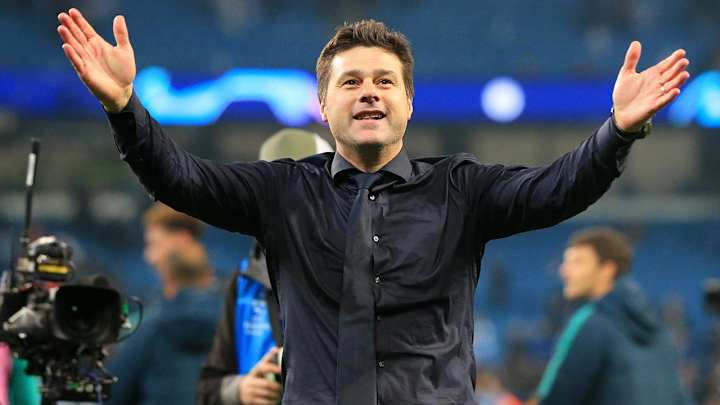As Tottenham Changes Identity, Mauricio Pochettino Leaves With His Dignity Intact

Football can be an unforgiving world. In his five years as manager, Mauricio Pochettino transformed Tottenham Hotspur. He took a team famous for being an also-ran and made it a contender. Although there was no trophy to cap his reign, there was a Champions League final, Tottenham’s first and while there will always be those who will count the lack of silverware against him, Pochettino consistently outperformed the budget allocated him and made Tottenham, for the only time in its history, regular qualifiers for the Champions League.
This season has not begun well. Tottenham lies 14th in the table, 20 points behind the league leader Liverpool. It has own only three league games all season. It hasn’t won away in the league since January. There has been a sense for a while of crisis mounting, that the run to the Champions League final to an extent masked domestic problems towards the end of last season.
And yet this nonetheless feels a very modern decision.
Football these days has no patience. Once a manager would have been granted time to refresh and rebuild a squad. There was no sense here for the sort of toxicity that characterized, for instance, Jose Mourinho’s final months at Chelsea. Pochettino’s time at Tottenham even with this limited hindsight looks an overwhelming success. It’s hard to imagine many industries in which a highly respected employee would be paid £12.5m to have their contract terminated early when a number of the employer’s rivals would probably be delighted to take him on.
The announcement of Pochettino’s dismissal will have caused ears to prick up at Manchester United, Bayern Munich, Barcelona and Real Madrid, perhaps even at Arsenal. Pochettino is more highly respected as a coach than any of the present incumbents at those clubs. Perhaps he will have a break, but he will be back soon enough and in a top job. Again, it’s hard not to wonder at the nature of football and the way that at the slightest sign of trouble the instinct is to sack the coach.
There are problems at Tottenham but other than Pochettino’s frustration at the limitations on spending, few had much to do with the manager. In a sense Tottenham is still paying for its lack of a single signing in 2018. That led to staleness and an imbalance in the squad that has left Christian Eriksen, Toby Alderweireld and Jan Vertonghen in the final year of their contracts. Danny Rose is also contemplating the exit.
With Kieran Trippier and Kyle Walker not properly replaced (althoughRyan Sessegnon has been signed injuries have limited him to one appearance this season), there are major issues at full-back. Mousa Dembele is still missed, Dele Alli has not recaptured his form after last season’s injuries and Eric Dier and Victor Wanyama have effectively been frozen out, leaving major problems in midfield. The accusation is that Pochettino has struggled to deal with some egos in the dressing-room, but the lack of a budget and the number of players edging towards the end of their contracts has made it difficult for him to act with the ruthlessness he once did.
The pace and aggression that once characterized Spurs under Pochettinohas gone. Players have aged and familiarity has perhaps wearied them to Pochettino and his methods. Double training sessions and relentless tactical work take their toll – just as they did in the end for Jurgen Klopp at Borussia Dortmund and, repeatedly, for Marcelo Bielsa, who gave Pochettino his debut at Newell’s Old Boys.
But that, perhaps, is why the squad needed rejuvenation. The logic seems to be that it is easier (and cheaper) to replace a manager than a handful of players and perhaps that is true but whoever replaces Pochettino will face similar difficulties in terms of personnel. In fact, it may be those issues become worse if players who have previous remained loyal and stayed at the club despite comparative low wages lose faith in the project. For all the magnificence of the new stadium, Tottenham is perhaps not quite such an attractive job as it would recently have appeared.
Pochettino, meanwhile, leaves with his dignity and reputation intact, still broadly popular with fans, players and the media. In that sense, this could be a major challenge for the chairman Daniel Levy, whose tight control of the purse strings has at times seemed excessive and thus self-defeating. It’s not hard to imagine fans turning on the board if there is not a rapid improvement under a new manager. That will only be heightened if Pochettino takes a new club and prospers as his record suggests he will.
Some day, football may realize that there are solutions to problems that don’t rely on sacking the manager.

An accomplished author of multiple books, Jonathan Wilson is one of the world’s preeminent minds on soccer tactics and history.